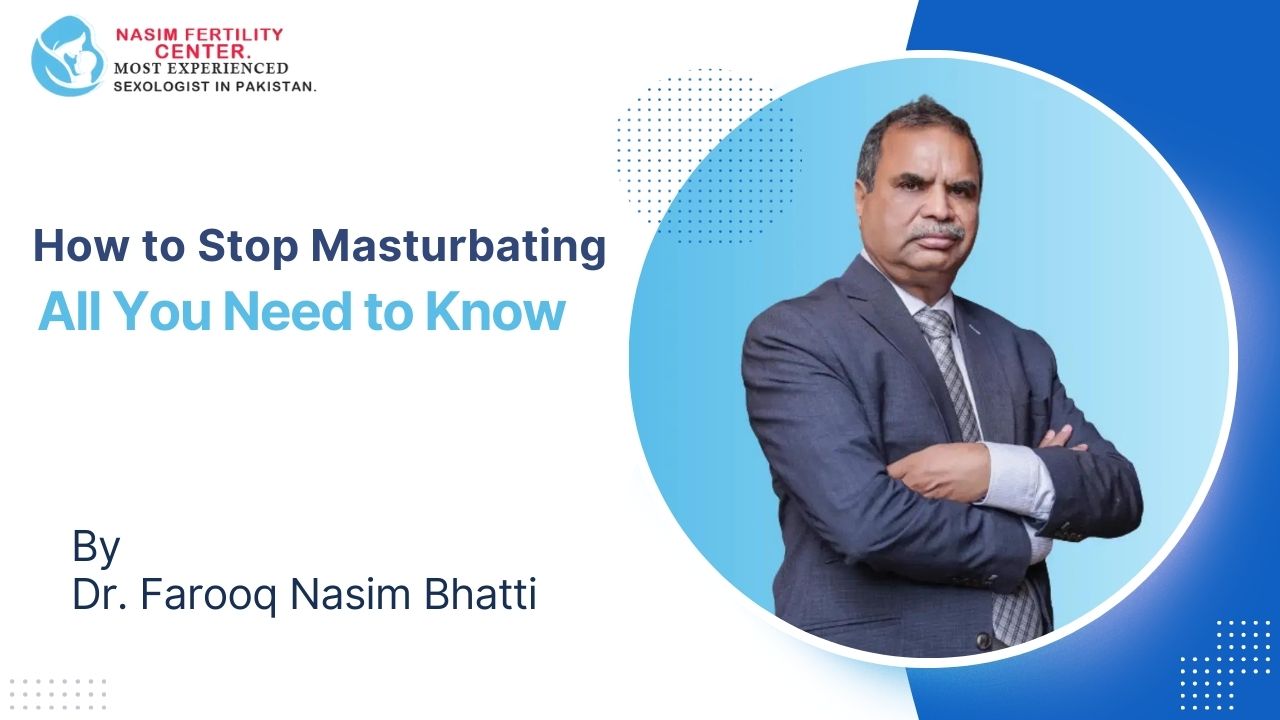
Masturbation is a common practice that many engage in for sexual pleasure and stress relief. However, for some individuals, it may become a compulsive habit, leading to feelings of guilt, anxiety, and disruption of daily life. Some may find themselves wanting to reduce or stop this behavior due to personal, psychological, or relational reasons. Recognizing when masturbation becomes excessive is crucial. Signs include:
- Inability to control the urge to masturbate
- Skipping work, school, or social events to engage in masturbation
- Feeling guilt or shame associated with the behavior
If you’re looking to understand how to stop masturbating and regain control, this guide offers expert advice and practical strategies to help you overcome the habit.
Have you ever wondered how frequent masturbation might be affecting your life? Is it just a harmless activity, or could it have more profound implications on your mental, physical, and emotional well-being?
Many individuals who struggle with excessive masturbation may experience feelings of guilt, dependency, and even changes in their perception of sexual pleasure. Let’s explore this topic in detail to understand the potential consequences and benefits of stopping masturbation.
Why Do People Want to Stop Masturbating?
There are various reasons individuals may wish to stop or reduce masturbation:
- Psychological Impact: Excessive masturbation can lead to feelings of guilt, shame, and anxiety. These feelings may worsen over time, creating a cycle of emotional distress.
- Physical Effects: Over-masturbation can cause physical discomfort, including genital irritation, fatigue, and in severe cases, conditions like Peyronie’s disease. Repetitive motions can also lead to physical strain.
- Impact on Relationships: It can interfere with intimacy, reduce interest in sexual activities with a partner, and cause strain in romantic relationships.
Barhati hui masturbation ki aadat se pareshan hain?
Dr. Farooq Nasim Bhatti se confidential counselling hasil karein — apni willpower ko mazboot banayein aur mardana sehat ko wapas payein.

Is Masturbation Bad for You?
Guilt
Frequent masturbation can lead to feelings of guilt, particularly if it conflicts with personal, cultural, or religious beliefs. This guilt can have a profound impact on mental health, leading to feelings of shame and self-doubt.
Decrease in Sexual Sensitivity
Over-masturbation can cause desensitization, which means a person may struggle to achieve the same level of arousal or pleasure during sexual activities with a partner. This can impact relationships and lead to a less satisfying sex life.
Dependency
Masturbation can become a coping mechanism for stress, anxiety, or boredom. When it becomes a habit, it can lead to dependency, where one feels the urge to masturbate frequently, potentially affecting daily life and responsibilities.
Edema
Excessive or aggressive masturbation can cause temporary swelling of the penis, known as edema. While this condition is generally harmless, it can be uncomfortable and a sign of over-stimulation.
Change in Sexual Pleasure Perception
Frequent masturbation, especially with a focus on specific fantasies or stimuli, can alter an individual’s perception of sexual pleasure. This can make it challenging to experience satisfaction in more traditional forms of sexual activity, potentially leading to sexual dysfunction.
When Is Masturbation a Problem?
Masturbation becomes problematic when it interferes with your daily life, relationships, or causes emotional distress. Some signs that masturbation might be a problem include:
- Frequency: If you find yourself masturbating excessively, to the point where it affects your responsibilities, it may be excessive.
- Compulsion: Feeling an uncontrollable urge to masturbate, even when it’s not appropriate or desired.
- Guilt and Shame: Persistent feelings of guilt or shame after masturbating.
- Interference with Daily Life: If masturbation interferes with your work, school, or social life, it’s time to seek help.
10 Best Benefits of Not Masturbating
Better Focus
By reducing the habit, you can redirect mental energy toward more productive tasks. Improved focus can lead to enhanced performance in work, studies, or personal projects.
Increased Energy
Excessive masturbation can leave one feeling drained and fatigued. By cutting back, many report experiencing a boost in energy levels, which can be utilized in various areas of life.
Improved Mental Health
Stopping masturbation can lead to reduced feelings of guilt and shame, resulting in a more positive outlook on life and improved mental well-being.
Better Relationships
Reducing masturbation can enhance intimacy and connection with a partner, fostering healthier and more satisfying relationships.
Reduced Anxiety
Masturbation, particularly when used as a stress-relief mechanism, can lead to increased anxiety over time. By stopping, individuals often find a reduction in anxiety levels and an improved mood.
Boost Self-Confidence
Gaining control over the habit can boost self-esteem and confidence, contributing to a more positive self-image.
Increased Willpower and Discipline
Learning to resist the urge to masturbate can help build self-discipline, which can have positive effects in other areas of life, such as work, fitness, and personal growth.
Better Sleep
Overstimulation through masturbation can sometimes affect sleep patterns. By stopping, individuals may experience improved sleep quality and feel more rested.
Enhanced Physical Vitality
With increased energy and reduced feelings of fatigue, stopping masturbation can lead to a greater sense of physical vitality and well-being.
Improved Sexual Health
By reducing masturbation, individuals may notice an improvement in their sexual health, including better erectile function and a renewed sense of sexual desire.
Practical Strategies to Stop Masturbating
Identify Triggers
Understanding what prompts the urge to masturbate is the first step. Common triggers include boredom, loneliness, or exposure to pornography. Keeping a journal to track these triggers can be beneficial. Also you may experience a different side effects of Masturbation if you do it excessively.
Limit Alone Time
Spending excessive time alone can increase the likelihood of masturbation. Engaging in social activities or spending time with family and friends can help reduce opportunities for this behavior.
Avoid Pornography
Pornography often serves as a significant trigger for masturbation. Limiting or eliminating exposure to pornographic material can help diminish urges. Consider using website blockers or avoiding situations where you might encounter such content. You can also take help from porn addiction Counseling expert .
Engage in Physical Activity
Exercise releases endorphins, which can improve mood and reduce the desire to masturbate. Aim for regular physical activity, such as walking, jogging, or joining a sports team, to keep both your body and mind engaged.
Develop New Hobbies
Filling your time with new interests can distract from urges. Consider activities such as:
- Creative Arts: Painting, writing, or playing a musical instrument.
- Sports: Joining a local team or taking up a new sport.
- Mindfulness Practices: Yoga or meditation can help redirect focus and manage stress.
Seek Professional Help
If masturbation is interfering with your daily life, consider speaking with a therapist or sexologist. Professional guidance can help address underlying issues and provide tailored strategies for change.
Dr. Farooq Nasim Bhatti, MBBS, Diplomate of the American board of Sexology (USA), FAACS (USA), with 31 years of experience in male sexual health, offers online consultations to help address and manage compulsive behaviors.
Build a Support Network
Discussing your goals with trusted friends or family can create accountability. Joining support groups, either online or in-person, can also provide encouragement and reduce feelings of isolation.
Use of Apps
Several apps are designed to help individuals break habits by tracking progress and offering daily motivation. Consider using one of these tools to stay on track.
Replace Negative Thoughts
Instead of focusing on the urge, immediately replace the thought with a positive activity or affirmations that align with your goals.
Set Realistic Goals
Instead of attempting to quit abruptly, set gradual goals. For instance, if you currently masturbate daily, aim to reduce it to every other day, then weekly. Celebrate small victories along the way.
Medications
In some cases, medications may be prescribed to help manage compulsive masturbation or underlying psychological issues. However, medication should be considered as part of a comprehensive Masturbation treatment plan, including therapy and lifestyle changes.
Find a Therapist
If masturbation is causing significant distress or is linked to underlying psychological issues, seeking professional help is highly recommended. A therapist specializing in sexual health can provide personalized strategies and coping mechanisms. They can help address underlying issues such as anxiety, depression, or relationship problems that might be contributing to the habit.
- Cognitive Behavioral Therapy (CBT): CBT is particularly effective in treating compulsive behaviors. It helps you recognize and change negative thought patterns that lead to unwanted behavior.
- Sexual Health Counseling: Specialized counseling can address the emotional and psychological aspects of sexual health and help you develop healthier habits.
Conclusion
While masturbation is a normal part of sexual health, it’s essential to recognize when it becomes a concern. By understanding triggers, engaging in alternative activities, and seeking support, individuals can effectively reduce or stop this behavior.
For those struggling with sexual health issues, Nasim Fertility Center offers expert guidance led by Dr. Farooq Nasim Bhatti, a seasoned sexologist with 31 years of experience. If you’re looking to improve your sexual health or have concerns about excessive masturbation, reach out to us for personalized support and treatment.
Frequently Asked Questions:
Can masturbation cause erectile dysfunction?
While there is no direct link between masturbation and erectile dysfunction (ED), excessive masturbation can potentially contribute to ED in some cases. Frequent masturbation may cause Sexual Neurosis due to guilt feeling of sin nd fear of sex weakness. However, ED can have multiple underlying causes, and it’s essential to consult with a healthcare professional for proper diagnosis and treatment.
When should I seek professional help to stop masturbating?
You should consider seeking professional help if masturbation is interfering with your daily life, causing emotional distress, or if you’ve tried to stop on your own without success. A therapist or sexologist can provide personalized strategies and support to help you regain control, or when masturbation case Sexual Dysfunction, Sexual Diseases (like Erectile Dysfunction ED, impotence, Non-Consummated Marriage, or Premature Ejaculation) and Physical Health Weakness.
What if I cannot stop on my own?
If you find it challenging to stop, consider seeking support from a qualified sexologist. At Nasim Fertility Center, Dr. Farooq Nasim Bhatti offers professional guidance to help individuals overcome this issue.
Will stopping masturbation improve my sexual performance?
Many individuals report improved sexual performance and sensitivity after reducing or stopping excessive masturbation.
Is it normal to feel guilty about masturbating?
Feeling guilty about masturbation can stem from personal, cultural, or religious beliefs. While masturbation is a natural activity, it’s essential to maintain a balance and address any negative feelings with a healthcare professional if they persist.
Disclaimer
This information is for educational purposes and not the treatment. For treatment, you need to consult the doctor.

Dr. Farooq Nasim Bhatti (MBBS, FAACS – USA, Diplomate: American Board of Sexology, CST, HSC – Hong Kong, CART – Malaysia & China) is a qualified medical sexologist with 30+ years of experience. He has presented 21+ research papers internationally and treats sexual dysfunction through sex therapy, counseling, and pharmacotherapy to restore natural sexual function without temporary medication.

Regain Confidence with Our ED Solutions
Explore effective treatments for erectile dysfunction. Take charge of your intimacy today.


